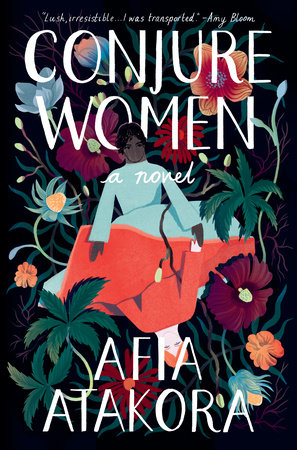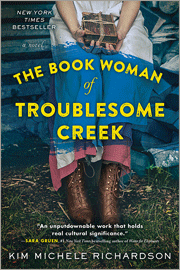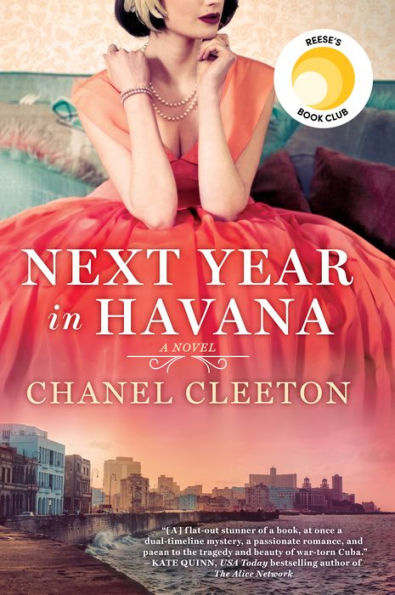It’s safe to say that so far, 2020 has been . . . tougher than any of us expected. Even if we’ve weathered the transition to wearing our masks, working from home, and Zooming with friends instead of hanging out in person, it can be hard to keep spirits up. Fortunately, there are always books to remind us that it won’t always be this way. If you, like a lot of us, are feeling a little anxious about the future, where better to turn for reassurance than historical fiction? The seven books below promise us that even in challenging times, people can surprise you with the power of strength, compassion, and love.

7 Historical Novels with Resilient Characters to Pick Up When the Going Gets Tough
We all know “Keep Calm and Carry On,” but that doesn’t mean there isn’t plenty of new details to discover in Kelly’s London-set World War II novels. THE WHISPERS OF WAR focuses on three young women who must decide what they owe to their country versus what they owe to one another, when one of them—a German immigrant—is threatened with internment in the buildup to Britain’s entering the war. The author is an American living in London herself, and in addition to the complex and engaging female friendships she creates for her characters, she also brings the historical setting beautifully to life on every page.
The start of World War II looms over three friends who struggle to remain loyal as one of them is threatened with internment by the British government, from the author of the “sweeping, stirring” (Kristin Harmel, internationally bestselling author of The Room on Rue Amélie) The Light Over London.
In August of 1939, as Britain watches the headlines in fear of another devastating war with Germany, three childhood friends must choose between friendship or country. Erstwhile socialite Nora is determined to find her place in the Home Office’s Air Raid Precautions Department, matchmaker Hazel tries to mask two closely guarded secrets with irrepressible optimism, and German expat Marie worries that she and her family might face imprisonment in an internment camp if war is declared. When Germany invades Poland and tensions on the home front rise, Marie is labeled an enemy alien, and the three friends find themselves fighting together to keep her free at any cost.
Featuring Julia Kelly’s signature “intricate, tender, and convincing” (Publishers Weekly) prose, The Whispers of War is a moving and unforgettable tale of the power of friendship and womanhood in the midst of conflict.
MENTIONED IN:
World War II historical fiction has been “having a moment” for the last five years, but the appetite for these novels seems to continue unabated. I suspect it’s because when reading these stories, we know that whatever else happens, the good guys are going to win. Harmel has several bestselling novels in this category, including her newest. Eva Traube is forced to flee Paris during the German occupation, landing in a remote mountain village where she begins helping a local resistance cell by forging documents for Jewish children being smuggled out of the country to safety. THE BOOK OF LOST NAMES is where she records their true identities so that they can someday, hopefully, find their families again. There’s a bit of romance for Eva, plenty of dramatic tension, and some fascinating facts about how the real-life forgers plied their craft.
Inspired by an astonishing true story from World War II, a young woman with a talent for forgery helps hundreds of Jewish children flee the Nazis in this unforgettable historical novel from the international bestselling author of the “epic and heart-wrenching World War II tale” (Alyson Noel, #1 New York Times bestselling author) The Winemaker’s Wife.
Eva Traube Abrams, a semi-retired librarian in Florida, is shelving books one morning when her eyes lock on a photograph in a magazine lying open nearby. She freezes; it’s an image of a book she hasn’t seen in sixty-five years—a book she recognizes as The Book of Lost Names.
The accompanying article discusses the looting of libraries by the Nazis across Europe during World War II—an experience Eva remembers well—and the search to reunite people with the texts taken from them so long ago. The book in the photograph, an eighteenth-century religious text thought to have been taken from France in the waning days of the war, is one of the most fascinating cases. Now housed in Berlin’s Zentral- und Landesbibliothek library, it appears to contain some sort of code, but researchers don’t know where it came from—or what the code means. Only Eva holds the answer—but will she have the strength to revisit old memories and help reunite those lost during the war?
As a graduate student in 1942, Eva was forced to flee Paris after the arrest of her father, a Polish Jew. Finding refuge in a small mountain town in the Free Zone, she begins forging identity documents for Jewish children fleeing to neutral Switzerland. But erasing people comes with a price, and along with a mysterious, handsome forger named Rémy, Eva decides she must find a way to preserve the real names of the children who are too young to remember who they really are. The records they keep in The Book of Lost Names will become even more vital when the resistance cell they work for is betrayed and Rémy disappears.
An engaging and evocative novel reminiscent of The Lost Girls of Paris and The Alice Network, The Book of Lost Names is a testament to the resilience of the human spirit and the power of bravery and love in the face of evil.
MENTIONED IN:
If World War II isn’t for you, consider this novel, set in the aftermath of the Civil War, when its wounds and victories are still new and raw. It’s told in two time lines only a decade apart, but that crucial decade separates the characters’ experiences into “slaverytime” and “freedomtime.” Rue, a young healer and midwife, already walks a delicate balance as she tries to fill the shoes of her late mother; when a newborn she delivered is rumored to be cursed, it’s hard to tell if the greater danger is from the great beyond or from the foes of emancipation who haunt the town in different ways. Atakora skillfully blends elements of magical realism with an exploration of the complex legacy our nation is still confronting.
One of the pleasures of historical fiction, no matter where or when it’s set, is the chance to learn something new and remarkable that you never covered in school. In the case of Richardson’s novel, we’re introduced to the packhorse librarians of the Great Depression, who traveled by mule to bring books to isolated townships. And if, as a book lover, you already knew about those stalwart women? You may still be surprised and delighted to read about the blue-skinned people of Kentucky, who have a genetic condition that tints their skin and led others to ostracize this Appalachian community. Protagonist Cussy Mary Carter unites these two groups, as a “Bluet” who becomes the “Book Woman” of the title, reminding all of us of the power stories have to heal.
Extreme times can forge powerful change, but sometimes you don’t want to travel too far back in the history books for your novel-reading pleasure. Enter SUMMER DARLINGS, set on Martha’s Vineyard in the Mad Men era. (That swimsuit on the cover! To die for.) Heddy is a college co-ed who’s taken a job working as a nanny for a wealthy family on the island—but when she learns she’s lost her scholarship, Heddy knows that she only has this summer to secure her future. She’s fascinated by the pampered lives she watches from the sidelines . . . but the closer she looks, the less she likes what she sees. A compelling “how the other half lives” novel perfect for readers who’ve already finished Karen Dukess’s THE LAST BOOK PARTY.
Set during the splendid summer days of 1960s Martha’s Vineyard, this page-turning debut novel pulls back the curtain on one mysterious and wealthy family as seen through the eyes of their nanny—a college student who, while falling in love on the elegant island, is also forced to reckon with the dark underbelly of privilege.
In 1962, coed Heddy Winsome leaves her hardscrabble Irish Brooklyn neighborhood behind and ferries to glamorous Martha’s Vineyard to nanny for one of the wealthiest families on the island. But as she grows enamored with the alluring and seemingly perfect young couple and chases after their two mischievous children, Heddy discovers that her academic scholarship at Wellesley has been revoked, putting her entire future at risk.
Determined to find her place in the couple's wealthy social circles, Heddy nurtures a romance with the hip surfer down the beach while wondering if the better man for her might be a quiet, studious college boy instead. But no one she meets on the summer island—socialite, starlet, or housekeeper—is as picture-perfect as they seem, and she quickly learns that the right last name and a house in a tony zip-code may guarantee privilege, but that rarely equals happiness.
Rich with the sights and sounds of midcentury Martha’s Vineyard, Brooke Lea Foster’s debut novel Summer Darlings promises entrance to a rarefied world, for readers who enjoyed Tigers in Red Weather or The Summer Wives.
While a lot of fiction in this category is dominated by European history, Chanel Cleeton has written novels inspired by her own family’s exodus from Cuba after the Revolution. This novel shares the dual timelines that have become a hallmark of the genre, showing us the life of Elisa, a young heiress swept up in a star-crossed love affair in 1950s Havana, and her granddaughter Marisol, who returns to modern Cuba to fulfill her grandmother’s dying wish. We see two Cubas in Cleeton’s skillful and engaging novel, as Marisol pursues family secrets—and possibly a dangerous love of her own.
Yes, we started this list with Harmel’s new book, but what can I say? I’m a fan. Although Paris is typically the star of the historical fiction show, this historical novel, again set in World War II, finds us in the Champagne region of northwest France. Hitler’s weinführer has been sent across the border with German troops to commandeer the country’s finest champagne for the Third Reich—but little do the Germans know that the Resistance is operating under their noses, in the cellars of the world’s most famous champagne houses. The characters in this book are messy, sometimes even hard to like, but satisfyingly complex. And although it may take a generation to do so, their stories end with closure, and hope. Open a bottle of bubbly and settle down for a fascinating ride with this one.
The author of the “engrossing” (People) international bestseller The Room on Rue Amélie returns with a moving story set amid the champagne vineyards of France during the darkest days of World War II, perfect for fans of Heather Morris’s The Tattooist of Auschwitz.
Champagne, 1940: Inès has just married Michel, the owner of storied champagne house Maison Chauveau, when the Germans invade. As the danger mounts, Michel turns his back on his marriage to begin hiding munitions for the Résistance. Inès fears they’ll be exposed, but for Céline, the French-Jewish wife of Chauveau’s chef de cave, the risk is even greater—rumors abound of Jews being shipped east to an unspeakable fate.
When Céline recklessly follows her heart in one desperate bid for happiness, and Inès makes a dangerous mistake with a Nazi collaborator, they risk the lives of those they love—and the vineyard that ties them together.
New York, 2019: Recently divorced, Liv Kent is at rock bottom when her feisty, eccentric French grandmother shows up unannounced, insisting on a trip to France. But the older woman has an ulterior motive—and a tragic, decades-old story to share. When past and present finally collide, Liv finds herself on a road to salvation that leads right to the caves of the Maison Chauveau.
MENTIONED IN:
Photo Credit: portostock/iStock















